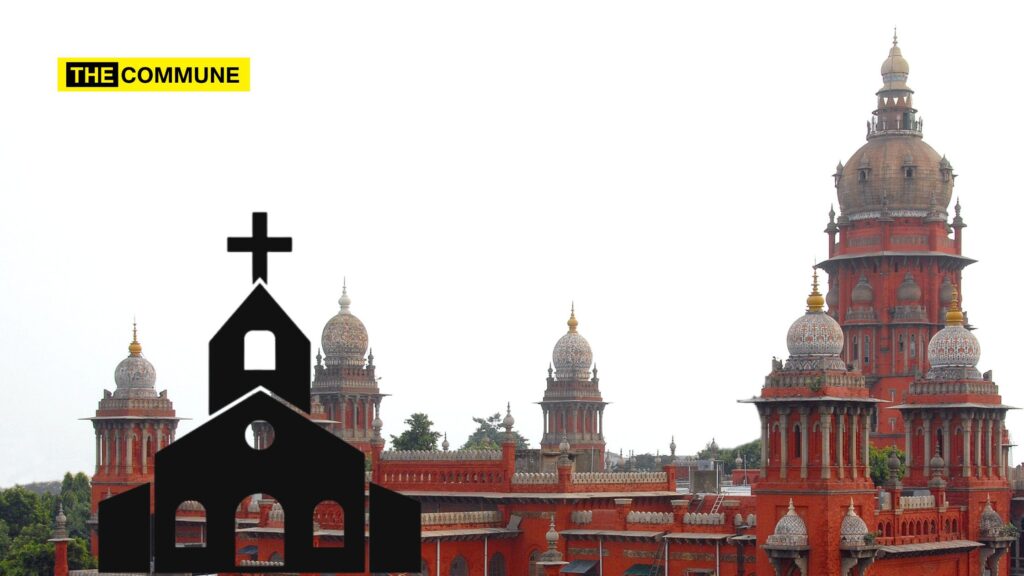The Madras High Court has once again asked the state and central governments’ views on forming a separate regulatory body for church assets, akin to the HR&CE department and Waqf Board. This follows a division bench’s call for a similar law less than a month ago.
Justices P Velmurugan and K K Ramakrishnan, while hearing a case involving a Christian society in Thoothukudi, noted that such legislation is necessary to safeguard church properties and prevent their sale or lease without prior court approval.
The bench pointed out that church assets worth over ₹1 lakh crore have been unlawfully alienated, with many Christian properties across the country involved in fraudulent claims and transactions. The judges observed that administrators of Christian communities have been misappropriating these properties for personal gain, violating the original charitable intent behind their acquisition.
“These properties were originally purchased by Christian missionaries with the sole purpose of uplifting the underprivileged and aiding those in need,” the bench remarked. “However, the absence of appropriate legislation to manage church assets has allowed for these illegal transactions to occur.”
The judges emphasized that a proper legal framework is urgently needed to regulate the administration of church properties and prevent fraudulent activities, such as unlawful claims by different factions within the same community. They highlighted that such actions contradict the core values of the church and its mission of serving society.
In light of these concerns, the bench recommended that the central government introduce a law similar to the Hindu Religious Endowments Act and the Waqf Act to regulate the administration of Christian institution properties and curb illegal activities.
This follows a similar recommendation by another single judge of the High Court last month, who pointed out the absence of a statutory framework to regulate Christian endowments, unlike those for Hindu and Muslim charitable trusts. The judge had called for the establishment of a statutory board to oversee Christian institutions and ensure greater accountability, directing the central and state governments to file reports on the matter.
(With inputs from TOI)
Subscribe to our Telegram, WhatsApp, and Instagram channels and get the best stories of the day delivered to you personally.

